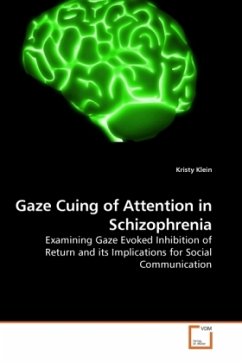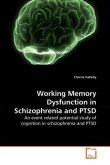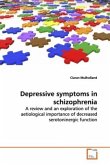This study experimentally tested the ability of normal participants and patients with schizophrenia to encode the direction of eye gaze using a novel Inhibition of Return (IOR) gaze-direction paradigm. All participants were administered a standard IOR paradigm and a gaze-evoked IOR task. IOR effects were predicted for control participants in both tasks but for participants with schizophrenia, IOR effects were predicted in the standard IOR task but not the gaze evoked task due to social cognition impairments found in people with schizophrenia. Results demonstrated that the IOR effect of slower responses to targets appearing at previously-cued locations compared to targets appearing at uncued locations was present for normal participants in attentional test conditions using both standard and gaze IOR paradigms. In patients with schizophrenia, however, a reduced IOR effect was evident in the gaze task, but not the standard task, when compared to controls. The results suggested disturbances in the ability to encode the direction of eye gaze in schizophrenia, which is thought to represent a key component of perceiving and understanding the intentions and actions of others.
Bitte wählen Sie Ihr Anliegen aus.
Rechnungen
Retourenschein anfordern
Bestellstatus
Storno








